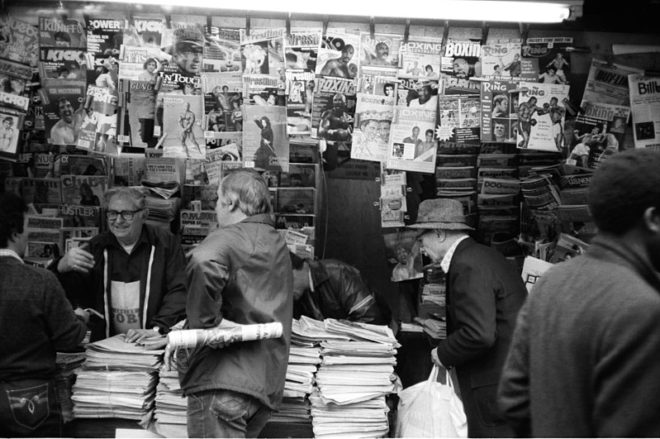by Chris Jennewein
Three decades ago, when America’s local newspapers were at their peak, I attended a dinner for publishers at a mid-sized chain. After dinner, the president rose to speak and asked everyone to clap for one publisher whose newspaper had exceeded a 50% profit margin in the previous month.
At a 50% margin, half of every dollar from subscribers and advertisers went directly to the bottom line. Sure, there was depreciation to account for, and some taxes to be paid, but overall that’s a level of profitability that would make a pharmaceutical company blush.
Profits aren’t a bad thing if they’re invested in building the business. Drug companies typically invest in drug discovery, which is an expensive and risky process. But newspapers typically invested in stock buybacks, which rewarded shareholders but starved the business.
During those glory days of high margins, newspapers experimented with online publishing, but it was always with pennies on a dollar of profit. Internet publishing was tolerated, but the focus was always on the print edition.
No newspaper group hunkered down and “bet the farm” on a full-scale transition to the Internet. Few executives or owners saw — or perhaps admitted –that the future might not include printed newspapers.
Now many of those newspapers are suing Google and Facebook, claiming these innovative companies that were barely startups 20 years ago stole the newspaper business. The class-action lawsuit including more than 200 newspapers has been consolidated with other antitrust suits against the two big Internet media companies in federal court in New York.
The lawsuit involves mostly smaller local newspapers, but bigger ones have supported a bill in the Senate that would paradoxically exempt newspapers from antitrust laws so that they can band together to extract money from the Internet companies. This is the so-called Journalism Competition and Preservation Act of 2021.
Newspapers seem to view Google and Facebook as thieves stealing the industry’s advertising profits, but it’s important to understand that the industry did everything it could to open the door and invite these supposed robbers inside. Year-after-year for decades the industry raised advertising rates, even as circulation flat-lined and fell as a percentage of the population.
Investment in enormously expensive printing presses — $100 million for a regional newspaper like the San Diego Union-Tribune — effectively made newspapers monopolies. They could charge whatever they wanted because it was so expensive to compete. Until suddenly it wasn’t.
First it was craigslist, then Google and finally Facebook. Advertisers realized something many readers already knew. The Internet was a much faster, easier and less-expensive way to get information or advertise a product. Who needed 12-hour-old news delivered on ecologically unsustainable newsprint?
A transformation like this isn’t unique to newspapers. New technologies and new ideas constantly reshape business. Horse and buggy makers didn’t survive the introduction of the automobile. The great ocean liners gave way to jet aircraft. Companies like Uber, Robinhood, Netflix and Airbnb are shaking up established industries.
Newspapers like to think they are special — an inseparable part of a democratic society. It’s a role in years past for which they can be justifiably proud. But times and technology have inexorably changed.
Today online news sites are appearing everywhere, giving newspapers competition and, more importantly, engaging younger audiences. The Local Independent Online News Publishers trade group now represents over 300 sites — more than the number of newspapers suing Google and Facebook.
We can certainly be nostalgic for the heyday of newspapers, and hope they ultimately succeed on the Internet, but their troubles are not the fault of Google and Facebook.
Chris Jennewein is editor and publisher of Times of San Diego. His career spanned reporting, editing, management and executive roles at six newspaper companies before turning to Internet publishing startups. This article was originally published on The Times of San Diego which, along with The Moderate Voice, is a member of the San Diego Online News Association.
















